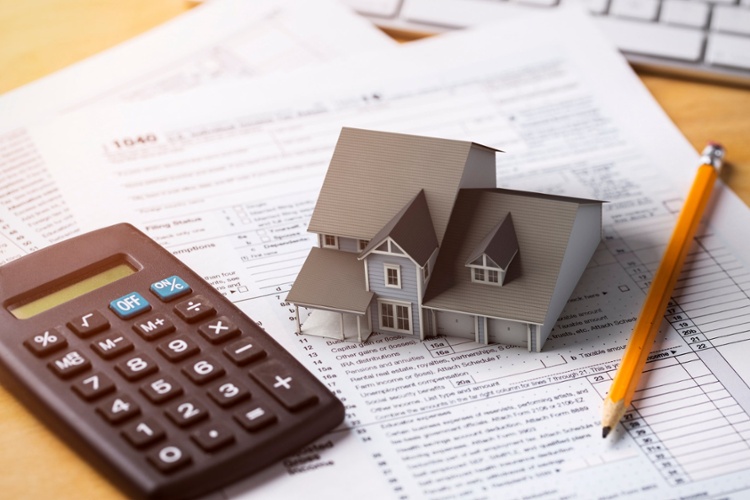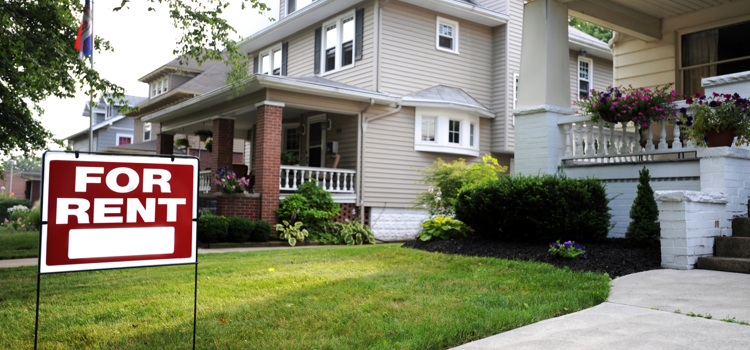When people have cash to invest, one of the first things they frequently think about is investing in real estate. Rental properties can generate additional income, increase in value, and offer tax benefits.
On the other side of the coin, owning real estate isn’t nearly as easy as it might seem. Keep reading to learn more about why people invest in real estate, and to understand if rental property is really a good investment.
Key takeaways
- People invest in rental property to diversify their investment portfolio away from traditional assets like stocks and bonds.
- Historically, single-family rental homes have generated more consistent returns than common equities.
- Benefits of investing in a rental property include the potential for recurring cash flow and long term appreciation, and to have direct control over the investment.
- Drawbacks to owning a rental property include having to make a large down payment, not always being able to sell quickly, and the fact that rental income is not guaranteed.
- Investors analyze key metrics such as cash flow, cash-on-cash return, and net operating income to help choose rental properties offering the most profit potential.
Rental properties can be a strong alternative to more volatile investments
With inflation on the rise, turbulence in China and the Middle East, and the Federal Reserve’s promise to taper, many investors are looking at rental property as an alternative to common equities like stocks and bonds.
Volatility in investing refers to the rise and fall of the prices of stocks, bonds, mutual funds, and real estate over time. The higher the volatility of an asset is, the riskier it is, because volatility often causes investors to make irrational decisions that may end up losing money.
Single-family rentals vs. stocks and bonds
One of the reasons that people view single-family rentals (SFRs) as a good investment is that they have historically been less volatile compared to the overall stock market.
According to data released by Roofstock, between 1992 and 2017 SFRs posted 17.5% returns during their best year, and declined by just 2.5% in their worst year. By comparison, stocks on the S&P 500 averaged annual returns of 35%, but also plummeted by double-digits during the worst years.
In fact, the single-family rental sector has had only two down years since 1992, while the stock market had a total of six down years during the same period.
SFRs are uncorrelated to stocks
Correlation is a statistic investors use to measure the degree that two asset classes move in relation to one another. A correlation coefficient of 1.00 means that two assets are perfectly correlated, while a correlation coefficient of 0.00 means they are perfectly uncorrelated.
Since 1971, single-family rental prices and stock prices have had a correlation coefficient of just 0.07. That means for the past 50 years, there is effectively no correlation between SFR prices and stock prices.
Investors who add rental property to their investment portfolios can help to reduce their exposure to risk that the volatile swings of stocks and bonds historically bring.
Pros and cons of investing in rental property
In addition to stable returns and independence from the stock market, there are a variety of other factors that help to make rental property a good investment.
Here’s a look at key advantages of investing in rentals, along with potential drawbacks to consider.
Pros of investing in rental property
- The opportunity to earn recurring cash flow after tenant rents have been collected and operating expenses and the mortgage have been paid.
- The potential for appreciation in property value over the long term, offering investors the option to sell at a profit when the time is right or refinance to turn equity into cash to purchase another rental.
- Tax benefits, such as deducting operating expenses, property taxes and mortgage interest, owner expenses such as travel and continuing education, and depreciation that often can be used to reduce taxable net income.
- An ability to perform a 1031 exchange to sell one rental property and buy another within a specific period of time to defer paying tax on capital gains and depreciation recapture.
- Unlike the stock market where investors are dependent on Wall Street, owning rental property gives investors complete control over what type of property to buy and where, choosing the most qualified tenants, and managing the home to maximize returns.
Cons of investing in rental property
- Recurring income is not guaranteed because expenses can be higher than revenue, it can take longer than expected to find a qualified tenant, or a tenant may not pay rent and need to be evicted.
- Directly investing in a rental property generally requires a significant down payment of 25% or more of the purchase price, so if a home costs $100,000, the minimum down payment a lender would require is typically $25,000.
- Real estate is illiquid and can not be bought and sold as easily or cheaply as common equities can, which is why investors need to have a sufficient income and cash on hand before investing in rental property.
- Even when real estate investors hire a local property management company, owning rental property is never a truly passive investment, because there are still financial reports to review and property and tenant issues that may require involvement of the investor.
- Owning an investment property also comes with a certain amount of risk of a lawsuit from a tenant or vendor who gets injured, although a good landlord insurance policy and holding a property under a limited liability company (LLC) may help to minimize risk and protect other business and personal assets.

How to calculate the return on a rental property
After reviewing the pros and cons, many investors may find that owning a rental property can be a good way to generate income and build wealth over the long term.
Here’s a simplified example of what a profit and loss statement for a rental property might look like, along with key metrics real estate investors use to calculate return.
We’ll assume that the home was purchased for $125,000 using a 25% down payment, and operating expenses are 40% of the annual gross income, as follow:
Gross Income
- Rental income: $12,500
- Pet rent: $240
Total Gross Income: $12,740
Operating Expenses
- Property management: $1,000
- Repairs and maintenance: $1,021
- Insurance: $675
- Property taxes: $2,400
Total Operating Expenses: $5,096
Net Operating Income: $7,644
Mortgage Payment: $5,371
Cash Flow
Cash flow is the amount of money left over after all of the rent has been collected and operating expenses have been paid. In this example, the cash flow is $2,273:
- $12,740 total gross income - $5,096 operating expenses - $5,371 mortgage payment = $2,273 cash flow
Cash-on-cash return
Cash-on-cash return compares the amount of cash earned from a rental property to the amount of cash invested. In this example, the cash-on-cash return is 9.1%:
- Cash-on-Cash Return = Annual Pre-Tax Cash Flow / Total Cash Invested
- $2,273 pre-tax cash flow / $25,000 cash invested down payment = 9.1%
In other words, for each dollar invested in the rental property, the investor earns a return of 9.1%.
Net operating income (NOI)
NOI on a rental property measures the profitability of an investment after subtracting operating expenses (excluding the mortgage payment) from total rental income. Mortgage and interest payments are excluded from the NOI calculation because different investors will finance rental property differently, such as making a larger down payment to receive a lower interest rate.
Cap rate
Cap rate is the percentage return calculated by dividing the NOI by the property price or market value. Based on an NOI of $7,644 and a property purchase price of $125,000, the property cap rate in this example is 6.1%:
- Cap Rate = NOI / Property Price or Market Value
- $7,644 NOI / $125,000 purchase price = 6.1% cap rate
Calculating the potential return of a rental property can be complicated, even for experienced investors. You can use the free rental property analyzer in this article to forecast the potential return of a property. Simply enter some information to view projected key return on investment (ROI) metrics, including cash flow, cash-on-cash return, net operating income, and cap rate.
Things to know before investing in a rental property
A rental property can be a good investment, but seasoned investors understand that returns don’t immediately begin, and that there may be some speed bumps along the way.
Here are a few things to think about before buying a rental property:
Tenant screening is critical
It can be tempting to sign a lease with the first tenant that comes along because a vacant property costs a landlord money. However, bad tenants can cause much more damage than people realize.
Having a good tenant screening system in place – including running a credit report, rental history, and background check – can help minimize the risk of renting to the wrong tenant.
Repair and maintenance costs will fluctuate
Before buying a rental property, investors put together a pro forma statement with anticipated income and expenses.
While rental income is usually easy to forecast, many investors make the mistake of underestimating the cost of repairs and maintenance. Although most of the funds to fix things will come from the rent a tenant pays, it’s important to have some money set aside in a rainy day fund for unexpected repairs and capital expenses.
Property taxes can skyrocket
Property taxes are a main source of funding for public services such as fire departments and police, school districts, and infrastructure projects like water treatment plants.
Unfortunately, some cities and counties do a much better job of keeping costs under control than others. Investing in rental property in low-tax states may help avoid surprises when property values are reassessed for taxes.
Landlords must know the rules
There’s a lot more to investing in a rental property than just buying a home. State landlord-tenant laws, the Fair Credit Reporting Act, and the Fair Housing Act provide tenants with important rights and protections.
Many investors hire a good local property manager to handle the daily details that come with owning a rental property, including helping a landlord comply with the law.
Final thoughts
Buying a rental property can be a good investment, as long as people have the right expectations and understand the basics of investing. Since 1992, the single-family rental home sector has had only two down years, while the S&P 500 has had six. Although, like any investment, real estate investments carry risk, a good rental property can generate recurring cash flow, appreciate in value over the long term, and provide tax benefits.










